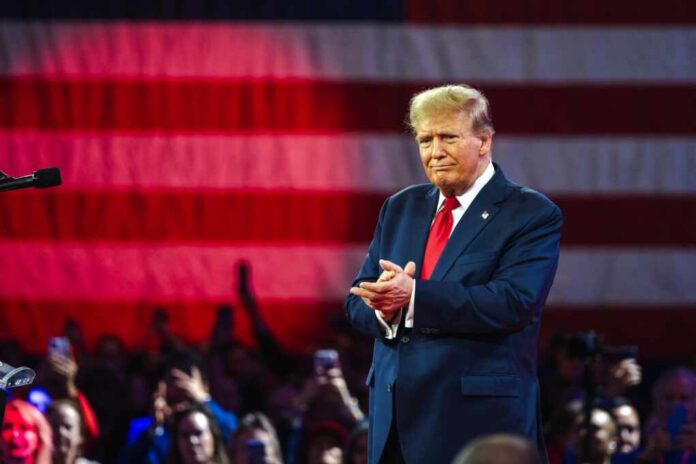
United States District Judge Aileen Cannon presided over a pivotal hearing on Wednesday concerning the case involving former President Donald Trump’s handling of classified documents.
Trump faces 40 felony charges related to the alleged mishandling of classified materials and hindering government efforts to recover them. Documents seized by the Federal Bureau of Investigation (FBI) during a controversial raid of Trump’s Mar-a-Lago estate in 2022, totaling 102 with classification markings, form the crux of the case.
Held at the Fort Pierce courthouse in Florida, Wednesday’s hearing marked the first significant development since the trial’s postponement earlier this month. Judge Cannon delayed the trial indefinitely due to numerous unresolved pretrial motions. This decision came after the prosecution conceded that certain evidence had not been properly preserved, with documents found out of order and colored cover sheets indicating classification levels missing from Trump’s possession.
It has always been very clear that the “Documents Case” is nothing but an Election Interference Scam concocted by Crooked Joe Biden, Deranged Jack Smith, and their Hacks and Thugs… pic.twitter.com/KZS6XggGg5
— Trump War Room (@TrumpWarRoom) May 9, 2024
Special Counsel Jack Smith’s team attempted to account for the disarray in evidence, attributing it to accidental displacement during transportation of smaller items.
The hearing saw Trump’s legal team presenting arguments for dismissal, with Trump himself absent. Alongside Trump, the court considered motions to dismiss charges against co-defendant Waltine Nauta, who served as Trump’s valet at the White House and later as his personal aide at Mar-a-Lago.
Trump and his co-defendants maintain their innocence, pleading not guilty to all charges. Trump’s legal team previously filed a motion to dismiss, characterizing the indictment as a politically motivated attack.
In a February motion, Trump’s defense alleged the raid on his estate was unconstitutional and violated attorney-client privilege. Attorney General Merrick Garland authorized the raid, defending it as based on probable cause and providing sufficient guidance to FBI agents.
The prosecution countered Trump’s argument, asserting the warrant’s legality and dismissing Trump’s arguments as unsubstantiated, writing: “The warrant was supported by a detailed affidavit that established probable cause and did not omit any material information. And the warrant provided ample guidance to the FBI agents who conducted the search. Trump identifies no plausible basis to suppress the fruits of that search.”

























